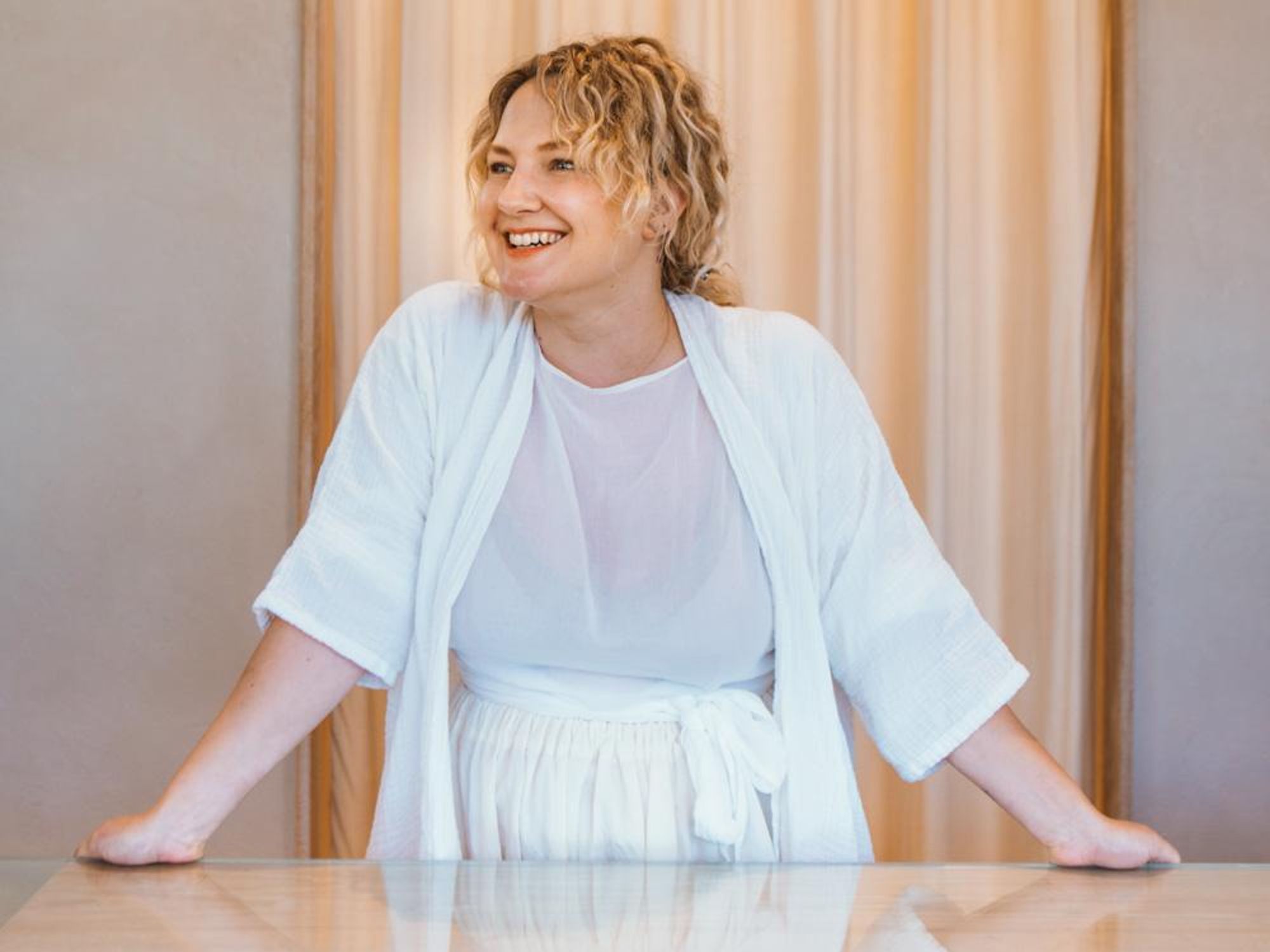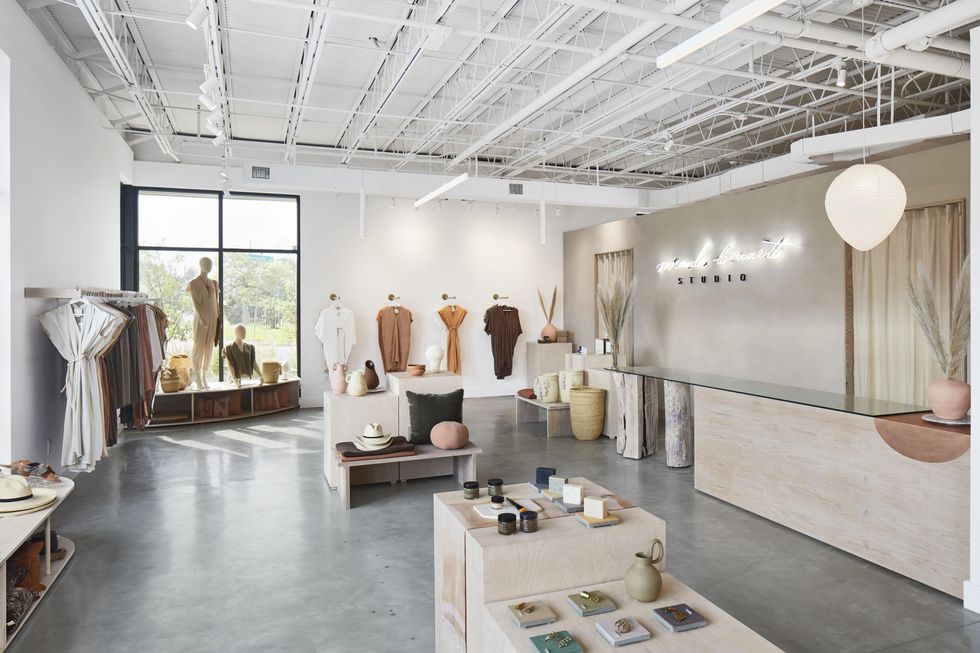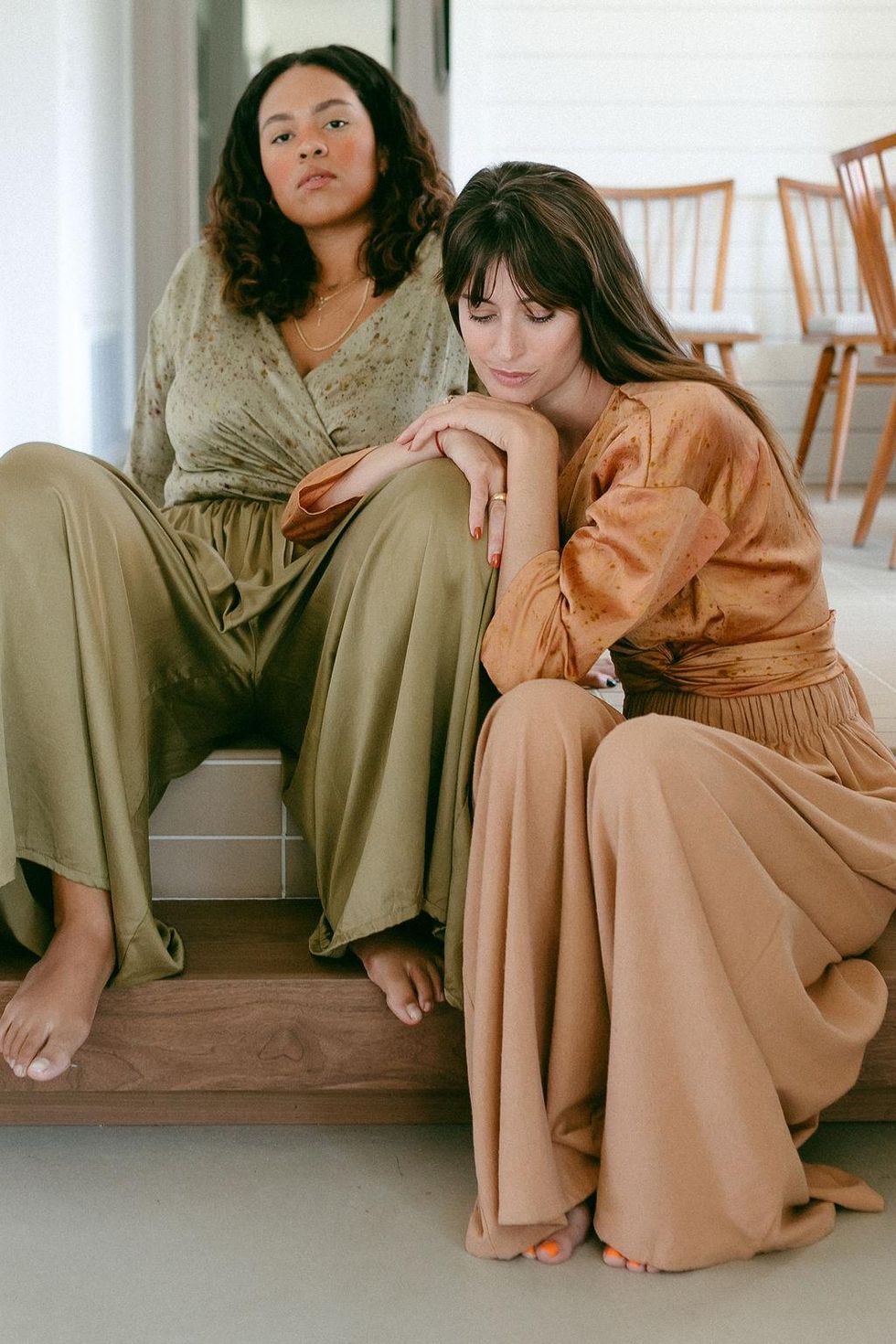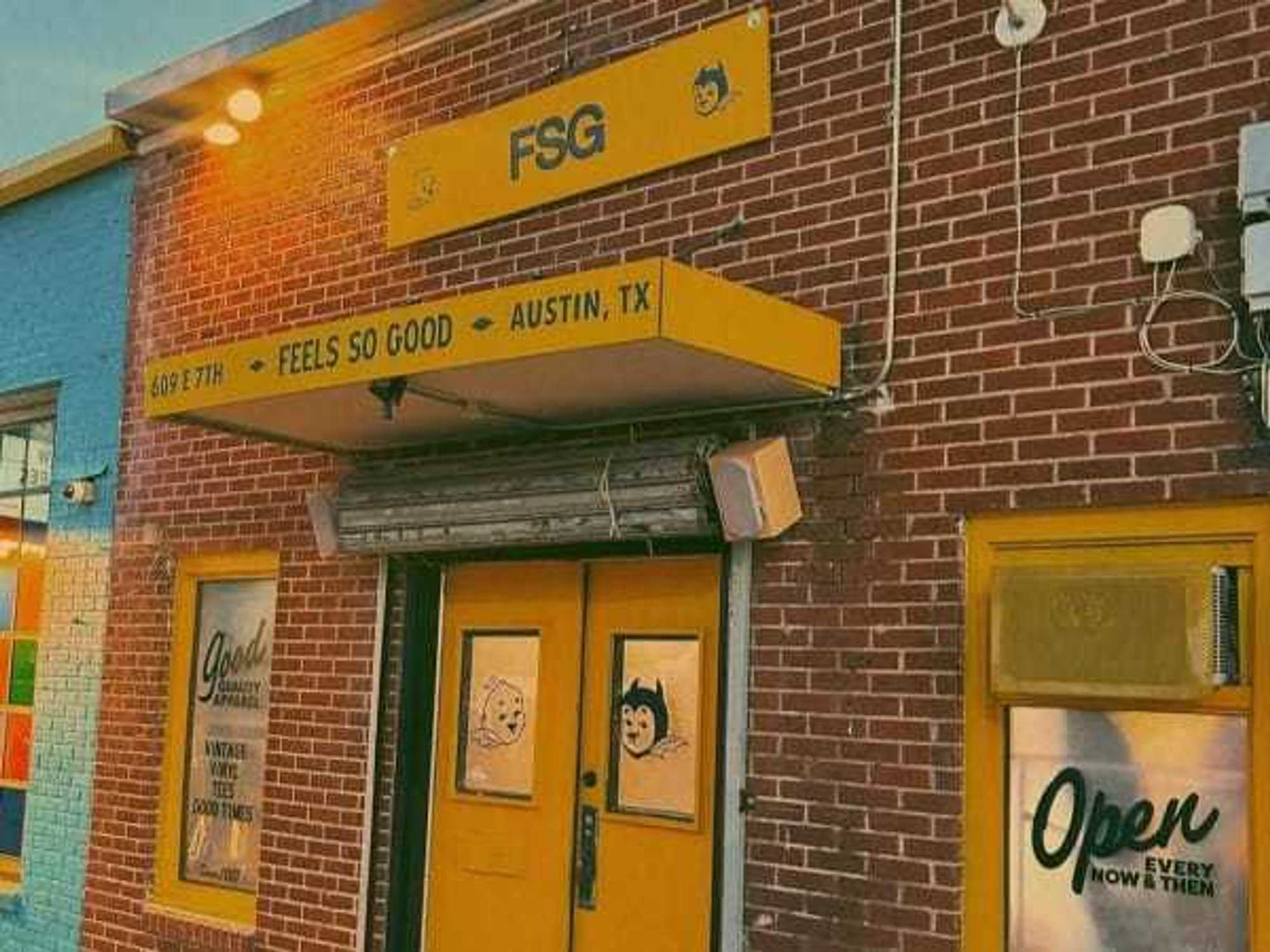Small Business Spotlight
Austin trailblazer Miranda Bennett creates connections with sustainable fashion, inclusive sizing, community

Even as the downtown skyline continues to change daily, Miranda Bennett has carved out an enduring corner of the city reminiscent of Old Austin. A native Austinite, Bennett left Texas for college and started her fashion career in New York City. She moved back in 2013 with what she describes as a “sense of burnout” and a deep desire to reconnect with her home town. Little did she know where those connections would lead, but connection has remained a theme in her small business ever since.
“Austin was a smaller city back then, but things were developing here in new and exciting ways,” she tells CultureMap. “I felt like there might be more opportunities here than in New York, but I didn’t know exactly how that would look.”
Bennett’s first Austin studio space was on Bolm Road in the now-closed Big Medium Gallery space, at the time a greenhouse for other Austin creatives like ceramicist Keith Kreeger. Surrounded by fellow artists and entrepreneurs, Bennett took her time resettling into the city, reigniting her creative juices, and refreshing her perspective on the fashion industry after a grueling 12 years in New York.
“I just really took a break from putting that commercial pressure on myself to create,” she says. “It took some time to just get my hands back in the process, and that was when I started to learn about plant-based dyes.”
Supporting herself as a stylist, Bennett spent her spare time at the library checking out books on natural dyes and experimenting with different techniques through trial and error. The process reinvigorated her desire to develop an American-based brand of sustainable clothing that could offset pitfalls of the fashion industry she had observed in New York.
“I learned so much from my experience there,” says Bennett, “but I also saw the enormous waste that comes with season-based cycles, and how the majority of apparel on the market at that time was produced overseas in often-times questionable conditions. So I saw this moment to bring together both my new-found love of plant-based dyes with this goal to create an alternative to those aspects of the fashion industry.”
From that combination, Bennett’s perennial “Everyday Dress” was born. Using organic cotton, naturally-derived dyes, and botanically-based source materials, the knee-length dress features a V-neck, flattering sleeves that hit at about the elbow, and a bubble gauze texture that’s the perfect weight for both Texas summers and layering in the colder months. The shop’s website describes the versatile product as the brand’s “North Star,” still an essential piece of the collection almost 10 years later.
Today, Bennett oversees a team of eleven other women in a mix of full-time and part-time capacities, but she started out dyeing, cutting, and sewing each of her products alone in her 180-square-foot studio. She was also the brand’s only sales representative, selling her Everyday Dress first at Feliz Modern out of the Palm Door on Sabine (now closed), and at Olive (also since closed). She recalls how the receptive Austin community struck her immediately:
“People were so supportive, whereas New York can be a much tougher environment where you have to really sell your idea. The difference here was palpable, and I started to feel like I could spread my wings in Austin, which made me so glad I moved back.”
Bennett hired her first employee in 2014, expanding quickly over the next few years into a larger production space with a growing team. At one point, they shared space in the same Rosewood Avenue complex as Micklethwait Barbecue, which she jokingly describes as a “historical re-enactment camp” with “guys outside chopping and smoking meats while we were in the backyard stirring cauldrons of dyes.”
The Rosewood space embedded Bennett’s connection to that pocket of East Austin, and her current retail space is just down the road on East 11th Street. Bennett’s husband first saw the for lease sign, and while it was not the move-in-ready space she’d envisioned, she felt the brand was ready to take on the investment risk in order to create a dream space.
“After a period of such slow and steady growth where everything had been bootstrapped, every dollar invested in the business, and with profits doubling year over year, it just felt like this was the right opportunity,” she recalls. “This pocket of Austin is so special for its rich, historical significance, so it’s incredible to see it now as a street of not just locally-owned businesses, but primarily women-owned businesses with the dream to enhance our community.”
Home to other local businesses like Lovecraft, Kindred Spirits, and Charm School Vintage, the East 11th Street corridor reminds Bennett of South Congress 20 years ago: “I love the slice of Austin we’ve seen grow here because you can still see the heart of the city and what makes us such a special place, both for Austinites and the people who seek us out when they come visit.”

While worth it in the end, the store’s buildout itself was certainly a labor of love for Bennett, who invested in and oversaw every step of the process from the pouring of concrete to wiring the electrical. The blood, sweat, and tears that helped open the space in December 2018 made it all the more devastating when COVID-19 mandates closed the shop just over one year later in early 2020.
“We had already taken such a big risk with the brick-and-mortar, and there were so many moments as a business owner where we had to ask whether it was best to stay open or stay as solvent as possible,” she says. “It was unthinkable to dissolve the business because of our ties to our team, our store, and our community: We were making a long-term investment, so my mantra was just ‘stay open, stay open.’”
Like every small business, Bennett pivoted during the pandemic to the best of her ability, pulling away from wholesale accounts and shifting to a more direct-to-consumer (DTC) model. She and her team also used that time to focus on an initiative they had been wanting to explore for some time, creating more size-inclusive collections. Today’s collections feature a hybrid of one-size-fits all options and pieces that range from 00-32.
“Our goal is to continue resizing pre-existing styles and create new ones,” says Bennett. “There are a lot of sustainable fashion brands out there, but not as many striving to be fit-inclusive. I’m really proud of the work my team did, going through extensive fit tests with the community and using their feedback to inform the cut, fit, and feel of our new size range.”

Despite the positive growth and successful pivots, though, Bennett recently shared a heart-felt statement on social media, outlining the ways COVID continues to impact small businesses like hers today. She notes how shifts like moving to a DTC model and expanding a size range would normally happen over the course of several seasons, whereas the pandemic meant they had to happen overnight.
“The truth is that any business that made it through COVID likely did so by acquiring unplanned debt,” she tells CultureMap. “We were so grateful for the PPP loans, but it wasn’t enough to cover our expenses. There are still so many ways we’re still trying to get our footing back that were just never in the business plan.”
Sharing some of those struggles openly on social media was scary, but it gave Bennett the opportunity to shine the spotlight on her small but mighty team. Asking the Austin community for help felt raw and vulnerable, she says, especially in light of the general state of the world, which she touched on in her statement. But the response has been overwhelmingly positive:
“It’s been beautiful to feel caught in that trust full with our Austin community,” she shares. “I know the day to day I live with my team, and how they come here to this place of work being able to be their whole selves, and that’s what’s kept me fighting to keep that going — to maintain what we’ve built and the people we’ve built it with and the connections with our customers that keep us going in so many ways.”
That connection is the root of the request, she continues, because her brand represents more than clothes: “It’s about the way people feel, the artisans and community leaders we can host in this space. The clothing is the thread that connects us but there’s so much more we work on, and to have people validate that is so helpful.”
And the validation was not just verbal, though the post did receive almost 200 comments and was shared widely in Instagram stories. The post generated new sales, which the team was busily fulfilling when CultureMap called to connect. While Bennett notes that the response is not a silver bullet, she feels buoyed by her community and encouraged to keep going, and that is almost more impactful.
“There’s still an anxiety about what will happen next week and the week after that,” she shares. “But I am really hopeful and feel ready to keep fighting, knowing we have an audience and people care about our success. That sentiment is meaningful to any small business, and it’s why we are all here: Our niche is the Austin creative community, the working women of Austin wanting to feel good in their clothes and their lives. That was the idea we started with, and that’s what the Austin community is still rallying behind today.”
